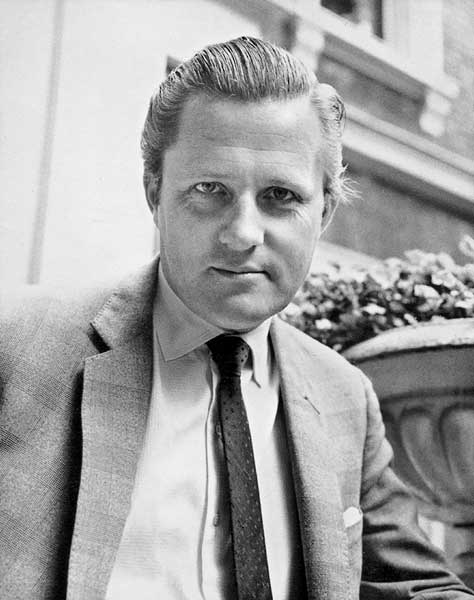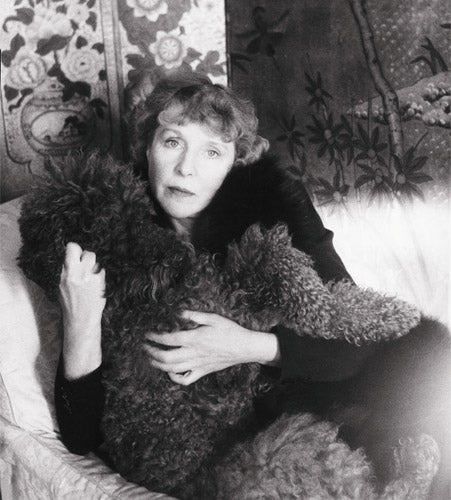John Julius Norwich: Aristocrat historian and broadcaster whose passions were inspired by remarkable parents
Son of a society beauty and a political powerhouse, Norwich abandoned a diplomatic career to become one of his generation’s best known cultural commentators on TV, radio and in print

Your support helps us to tell the story
From reproductive rights to climate change to Big Tech, The Independent is on the ground when the story is developing. Whether it's investigating the financials of Elon Musk's pro-Trump PAC or producing our latest documentary, 'The A Word', which shines a light on the American women fighting for reproductive rights, we know how important it is to parse out the facts from the messaging.
At such a critical moment in US history, we need reporters on the ground. Your donation allows us to keep sending journalists to speak to both sides of the story.
The Independent is trusted by Americans across the entire political spectrum. And unlike many other quality news outlets, we choose not to lock Americans out of our reporting and analysis with paywalls. We believe quality journalism should be available to everyone, paid for by those who can afford it.
Your support makes all the difference.Lord Norwich liked to have his cake and eat it. By adding his Christian names to the viscountcy granted to his father, John Julius Cooper became John Julius Norwich, which sounded less stuffy, but meant he retained his seat in the House of Lords. An incurable optimist, he had other fixed ideas, such as “Always push the boat out”, and “When in doubt, say yes”.
As John Julius Norwich, he titled his autobiography Trying to Please, and by and large he pulled it off. He was a successful popular historian, who also compiled a small annual selection from his commonplace books called A Christmas Cracker, which was so entertaining that it became a bestseller. Besides that, he was a TV documentary maker, and a radio panellist on Round Britain Quiz; an excellent lecturer and an active chairman of countless cultural organisations. His gift to them was energy, enthusiasm and charm, allied to a diplomatic manner learned during his 15 years in the Foreign Office. He was an all-rounder, socially and intellectually.
John Julius Norwich was the creation of two remarkable parents. His gilded upbringing gave him a more fulfilling education than he received at either Eton or Oxford, where he became an accomplished linguist but otherwise failed to distinguish himself. His mother, Lady Diana Cooper, was a daughter of the Duke of Rutland (Christmases were spent at Belvoir Castle). She was an unconventional society beauty who took to the stage and was adored by many who saw her performance in a single role, in The Miracle, a sentimental religious confection which played for a decade in Britain and the US.

His father was Duff Cooper, a man-about-town who resigned from the Foreign Office to become an MP, and resigned again as first lord of the Admiralty after the Munich Agreement in 1938. A favourite of Sir Winston Churchill, he became minister for information, and ambassador to Paris during the war in 1945 he was asked to stay on by Clement Attlee’s Labour government. His autobiography, Old Men Forget, is one of the best-regarded of political lives.
Lord Beaverbrook was John Julius’s godfather. Aged six, John Julius was taken in his dressing gown to hear to the great Russian bass Feodor Chaliapin sing in the Cooper’s sitting room; Churchill came to dinner; HG Wells and Hilaire Belloc looked in for drinks.
As a teenager, he was taken to the Nuremburg trials, and the heady atmosphere in the Paris embassy introduced him to a mixture of high politics and low scandal. His father’s mistress lived in the embassy, and was a close friend of the then Lady Diana. About her husband’s lovers, she merely said: “They were just the flowers, but I always knew I was the tree.” When her son joined the Navy as a national serviceman, she passed on information that she thought might prove useful, such as the naval slang for coitus interruptus: “like getting out at Fratton,” she said – the last station before Portsmouth Harbour.
John Julius’s mother frequently wrote him charming, chatty letters, and always, without his permission, pulled strings on behalf of the career of her only child. While he was serving as secretary to a ship’s captain in the Navy, for example, she arranged for his transfer to the battleship taking the royal family to Australia, and when John Julius was about to take up his first overseas post in the Foreign Office, Lady Diana tried to persuade Sir Anthony Eden, the foreign secretary, to send him to Paris, so that he should remain close to her.
Her intercessions did not always produce the desired result: in this instance, he became third secretary in Belgrade instead. But she introduced him to a Pope (Pius XII), and she encouraged him to ask General de Gaulle if he would mind if he ate up his unfinished helping of apple pie. (De Gaulle assented, apologising for having spilt cigarette ash on it.)
It was his father who urged John Julius to join the Foreign Office. He recalls that, although he had no burning desire to become a diplomat, he did like the idea of foreign travel. After Belgrade, he was sent to Beirut. By this time he was a lord, his father having died in 1954, only two years after he was ennobled; but John Julius’s career as a diplomat did not flourish. After an unrewarding period stuck in Whitehall, he resigned in 1964.
Absent any professional qualification, he decided to make his living as a writer. During his travels, he had learned of the history of the Normans in Sicily. He appointed a literary agent, who got him a publisher, and, sitting down in the London Library each day, he wrote his first proper book, in two volumes. His luck held when BBC TV chose him as a suitable presenter for historical and archaeological features.
John Julius was in the tradition of popular historians who, not committed to original research, concentrate on telling a story. For this reason, he found it more entertaining to write about the flamboyant characters in his three-volume history of Byzantium than about the dutiful but discreet Doges in his history of Venice. By nature he was not a controversialist, though he did upset some Catholic historians when he wrote about the papacy and described Pius XII, the first of four he had met personally, as a disagreeable antisemite. In all, he wrote 25 books.
There was some controversy about the propriety of his publishing his father’s absorbing diaries, not because of the politics, but because Duff Cooper was a libidinous figure who recorded his affairs matter-of-factly, whether in bed or the back of a taxi. He denied that this was a betrayal of his father’s memory: he was no plaster saint, he said, and would have not wished to be portrayed as one. John Julius’s edition of his mother’s gossipy and loving letters to him, titled Darling Monster, extended a small, satisfying family oeuvre.
Writing was a full-time occupation, but John Julius also made time for his causes. The most public of these was Venice. Taken there first by his father, he had become a devotee. Invited to become chairman of Venice in Peril in 1970, he campaigned tirelessly to save church interiors and architectural monuments, remaining a tolerant and even-tempered observer of the venality of Venetian and Italian politics. Eventually, he admitted that only way Venice could be saved would be by drastically reducing the number of tourists. He sat on the committee of the National Trust for 35 years, and wrote a guide to the best of English architecture. As a music lover, he was on the board of the English National Opera. “Night club piano” is listed as one of his recreations in Who’s Who; walking at night through Venice was another.
John Julius declared that felt he was a bit of a disappointment to his father, but his inheritance included some of his father’s genes. With his first wife Anne, he had had two children, Artemis and Jason, but he did not attempt to deny the birth of another, Allegra, to the former wife of John Huston. Later, John Julius settled into a relationship with Mollie Philipps, and they married in 1989 after his divorce from Anne. Artemis is a professional author, having written the biography of Patrick Leigh Fermor, whom John Julius regarded as a significant influence on his life. Jason is an architect. Allegra, who revealed the identity of her father in her own autobiography, became a scriptwriter and now lives in the US.
John Julius Cooper, Viscount Norwich, author and broadcaster, born 15 September 1929; died 1 June 2018
Join our commenting forum
Join thought-provoking conversations, follow other Independent readers and see their replies
Comments